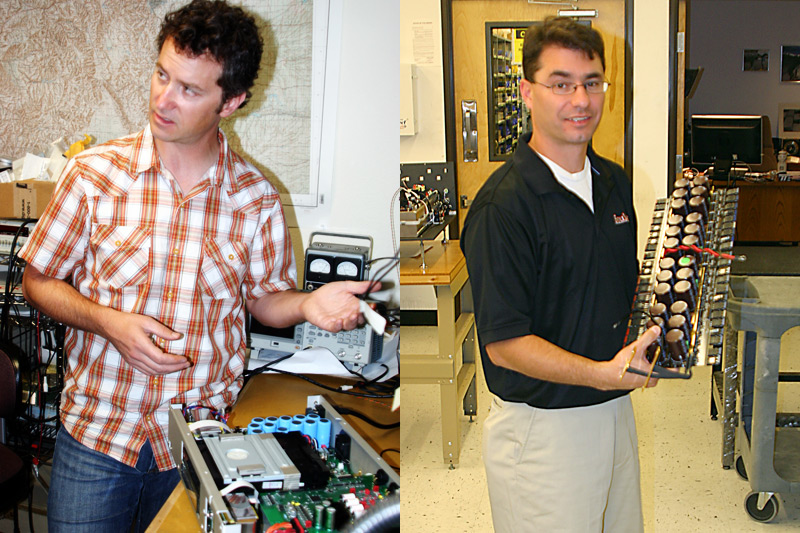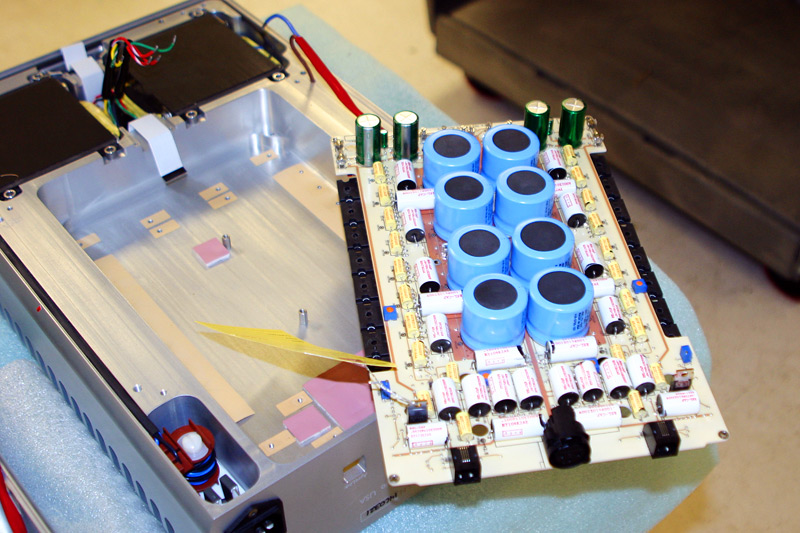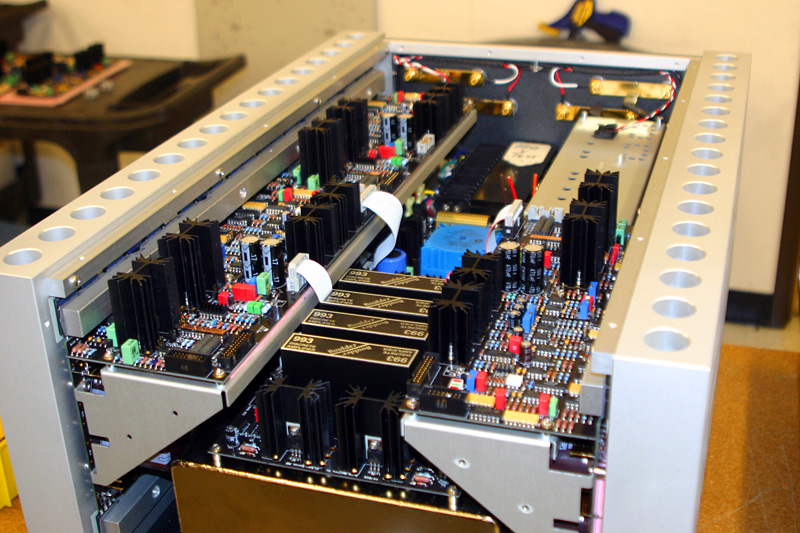| November 1, 2009
Ayre Acoustics and Boulder Amplifiers: (Mere) Miles
Apart
It’s unsettling to realize that, for many years now,
this audio-industry professional hasn’t known as much as he once thought he did.
Looking back on my career of reviewing high-end audio equipment, I’m almost
embarrassed to realize how little knowledge I started with. I’m still learning -- and
finding that I might want to leave a little wiggle room in some opinions I’d once set
in stone. Part of the problem for reviewers is that we like to think we know more than we
do because of a presumed correlation between what we’ve heard from our systems and
what we’ve been told about why we’re hearing it. Reviewers are notorious
for being unable to reconcile the objective with the subjective; for not realizing that a
hobby built on science and engineering as well as observational and emotional data
requires that we delve into both with equal commitment and respect.
Reviewers have advantages over the average consumer: In
consulting with experts in specific disciplines, we have almost unlimited access. Whether
it’s acoustics, digital and software development, or the design of loudspeakers or
electronics, there’s a multitude of people who know a great deal about each
discipline and who will typically make themselves available to reviewers for the sake of
accurate data transfer (cheesy, I know) to explain what they’ve done and what
they’re doing. It’s my hope that, like all good journalists, audio
reviewers will do their due diligence and take advantage of these resources in order to
educate themselves enough to present their readers with solid, accurate, informed
opinions.
Still, there are times when even experts disagree, and that
can leave someone like me with nothing but more questions. Just such a scenario took place
during the recent Great North American Loudspeaker Tour. With a day to kill in and around
Denver, Colorado, I decided to visit two companies whose products I greatly admire: Ayre
Acoustics and Boulder Amplifiers, both based in nearby Boulder. These companies have much
in common; most obviously, both make high-end electronics that audiophiles around the
world have found embody the current state of the art. Each firm makes a number of models
of power amplifier both mono and stereo, preamplifiers, CD players, and DACs. Though
neither makes what I’d call inexpensive components, Ayre’s prices start at the
more affordable end of the scale, while Boulder’s reach far into the clouds. Both
companies also specialize exclusively in solid-state electronics, eschewing tubes
altogether. There are probably other similarities, but these are the first that come to
mind -- and anyway, it’s the differences that are more interesting.

Left: Ayre's Steve Silberman explaining the company's
forthcoming DX-5 Blu-ray player.
Right: Boulder's Rich Maez holding the output stage for one channel of the 2060 amplifier.
Some of Ayre Acoustics’ cornerstones could be said to
be similar to those of Boulder Amplifiers: balanced circuitry and an emphasis on
power-supply design. Where the companies’ chief designers -- in effect, Ayre’s
Charlie Hansen and Boulder’s Jeff Nelson -- would vehemently disagree would be on the
use of feedback in their circuits. I’m not going to wade into a discussion here about
the use of feedback, because I’m not qualified to do so. According to Wikipedia, a
source not universally respected, feedback in amplifier design can be defined as
follows: "When a fraction of the output of an amplifier is combined with the input,
feedback exists; if the feedback opposes the original signal, it is negative feedback and
if it increases the signal it is positive feedback. A negative feedback amplifier, or more
commonly simply a feedback amplifier, is an amplifier which uses negative feedback to
improve performance (gain stability, linearity, frequency response, step response) and
reduce sensitivity to parameter variations due to manufacturing or environmental
uncertainties." Boulder states that they use feedback properly; Ayre
doesn’t use it at all. Given my overwhelmingly positive experiences with both
brands’ products, what do I conclude? That I don’t know who’s right.

An Ayre MX-R amplifier during assembly.
One thing I can conclude is that reviewers who tie
their audiophile belief systems to a single methodology in any given product genre need to
expand their horizons. It’s ultimately damaging to their ability to be fair and
objective if they equate "correctness" with the design philosophy of only one
company. The truth is that there may be more than one road to audio nirvana -- even if the
reviewers and/or the companies don’t want to admit it. For me, the truth is that
I’d be thrilled to call either Ayre’s or Boulder’s products my reference
electronics. I consider both companies to be among the small handful at the cutting edge
of performance of solid-state electronics. Perhaps they’ve taken different paths to
that edge, but each has arrived at some remarkable products.

A Boulder 2060 amplifier under construction.
What that says about feedback is anyone’s guess. All
we know is that Ayre and Boulder subscribe to different design philosophies. You could say
that, although those philosophies may be incompatible, each company exercises internal
consistency in its specific implementations of its particular view. The proof of the
pudding, they say, is in the eating, and both of these are delicious.
. . . Jeff Fritz
jeff@ultraaudio.com
|